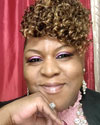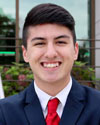City Council Candidate Responses – 2021
1. Please provide some personal background information (name, occupation, list any community activities you are involved with).
 Michael Beardsley: Name – Michael Beardsley
Michael Beardsley: Name – Michael Beardsley
Occupation – IT Consultant
List any community activities you are involved with – Involved with many regional and state organizations focused on environmental issues; Fostered dogs for Oshkosh Area Humane Society and have volunteered at the Boys & Girls Club; Proud member of the Oshkosh Food Co-Op; In my free time my wife and I take full advantage of Oshkosh’s natural beauty by kayaking or walking our dog all around the city
 Lateria Garrett: Name – Lateria Garrett
Lateria Garrett: Name – Lateria Garrett
Occupation – Store Manager
List any community activities you are involved with – Oshkosh Chamber, Boys & Girls Club, Diversity Affairs Commission, Oshkosh Community Ally Academy *Some of these have been at a stand still due to covid-19,however I’m excited to get back at it one we safely can.*
Courtney Hansen: No response.
Jake Krause (incumbent): No response.
Bill Miller: No response.
 Aaron Wojciechowski: Name – Aaron Wojciechowski
Aaron Wojciechowski: Name – Aaron Wojciechowski
Occupation – Aftercare Site Coordinator
List any community activities you are involved with – n/a
2. Please outline what you consider to be the City of Oshkosh’s 3 – 5 most critical issues.
Michael Beardsley: Recovering from COVID-19, environmental and economic sustainability, and fostering future growth. It’s imperative that we get passed this pandemic so we can get back to being the Event City. Environmental sustainability is an area that we cannot afford to choose inaction and I actually believe we can use this moment to make this an economic opportunity to be a leader in the green economy is this region. With environmental sustainability comes economic sustainability and a clear pathway to future growth of our city. This is going to require strong partnerships and buy in from private entities, the city can lead by example but that is only part of the equation. I’m all about finding ways that we can make Oshkosh an even better place to live and work, and my vision puts focus on making sure we are setup for success well into the future.
Lateria Garrett: • Increased transparency, collaboration & openness with residents
• Residents feeling heard and valued
• Increased economic growth & development
• Increased equity & inclusion for all Oshkosh residents
• Increased entertainment/events as we recover from covid-19 to rebound our tourism
Courtney Hansen: No response.
Jake Krause: No response.
Bill Miller: No response.
Aaron Wojciechowski: The most critical issues in my opinion are; recovering from COVID-19 and the impact on the budget. We must make sure our budget is balanced despite losses as a result of COVID-19. In addition my other top priorities are continued growth and economic development, criminal justice reform, sustainability, and talking issues of diversity and inclusion.
3. There are a number of geographic locations within the city that can benefit from attention to facilitate economic growth and development. Please identify and discuss what you consider to be the top two or three economic development priorities that you will champion as a member of the city council?
Michael Beardsley: The Sawdust District is front and center, Oregon St corridor has a massive amount of potential, and areas with lower than city average home value is where I will focus my efforts. It’s important to continue supporting projects that make Oshkosh a world class city while also working to lift up areas that need it. It’s great what is been doing for the Sawdust District and Lakeshore park, but we can’t leave behind other areas and further divide different areas of the city. More affordable housing and rehab costs is where I feel we can provide the most help as the Council for distressed areas.
Lateria Garrett: I’m a supporter of both economic growth and development, however I know we already have a few great developments in process and so I’m not sure if right now is the best time to add any new developments due the economic issues we’ve faced over the last year due to covid-19 and so my first course of action would be to get all the facts and engage our residents.
Courtney Hansen: No response.
Jake Krause: No response.
Bill Miller: No response.
Aaron Wojciechowski: The key locations of Oshkosh where I would work to improve and create economic development are south of the Fox River, specifically South Main St area. There are lots of opportunities for growth there. I would also like to see the continuation of development near the new Oshkosh Corp. Headquarters. Both locations are prime locations to attract businesses and new industries without disturbing the residential areas of our city. Finally I would like to see some more attention given to the UW Oshkosh region. If we want to attract young people to work and live here, we need to make sure their first impression is good. That won’t happen when the roads and off-campus housing are in poor condition as it is now.
4. Previous City Councils have considered proposals to change the policy on how to fund the current street improvement and sidewalk replacement program. Past proposals included establishing a Transportation Utility Fee Program or a Transportation Assessment Replacement Fee as a means to eliminate special assessments for street reconstruction/improvement projects and the sidewalk replacement program. Do you support this type of a program? If so, what should be the basis to establish a transportation fee? Please discuss your position.
Michael Beardsley: I am in favor of a fixed fee utility program. I am also happy to take a hybrid approach of keeping special assessments for commercial properties but moving to the utility fee for residential properties. One main reason is that I’m not a fan of the current re-payment plan for special assessments which is a 10-15 year loan at 3-5%. For residents, a fairer system would be a fixed fee on their utility bills. There are legal questions around if the funds from a “wheel tax” can be put towards sidewalk repairs, and for that reason I don’t think it’s necessary to take that approach when I think a fixed utility fee is a more effective option.
Lateria Garrett: I would be in support of a that type of program as long as it delivered on a more equitable solution for both residents and local business owners, as I feel the burden of street and side walk repairs shouldn’t solely fall on the shoulders of our residents. I’m also anxiously awaiting the feedback from the study on alternatives that Janesville conducted regarding their special assessment program as there may be some learnings we can benefit from based on the work they’ve already done.
Courtney Hansen: No response.
Jake Krause: No response.
Bill Miller: No response.
Aaron Wojciechowski: I support a hybrid model to benefit both residential and commercial properties. I believe for residential properties a utility fee model would be more financially manageable. I would like to work with businesses and commercial properties to figure out what model would work best for them whether that be a special assessment or a utility fee. I am not supportive of a wheel tax right now.
5. Municipalities across the State are moving to Fee for Service approaches to pay for the delivery municipal services that were otherwise funded by the annual property tax levy. Do you support a funding approach like this? If so, what current city services would be appropriately funded as a Fee for Service? If a new Fee for Service is imposed, should property tax payers receive an equal, proportionate tax levy credit?
Michael Beardsley: I am not in favor of moving to fee for service. It’s important the city provides basic services to all to ensure equity and equality, growth, and a clean presentation. If fee for service is ultimately implemented, property tax payers should receive an equal tax credit levy.
Lateria Garrett: I don’t know enough about the fee for services approach to effectively answer this question, however what I do know is I’m open to listening and considering new ideas, while ensuring its in the best interest of our residents.
Courtney Hansen: No response.
Jake Krause: No response.
Bill Miller: No response.
Aaron Wojciechowski: I would need more information before making a decision. I would like to hear from the Chamber on their views and look at other communities that have implemented this type of funding approach to see the pros and cons. More information is needed.
6. The City established a Storm Water Utility in 2003 for the purposes of managing storm water run-off issues in the community. Residential property owners are assessed for one equivalent runoff unit (ERU). Non-residential property owners are assessed annual fees based on the amount of impervious space (parking lots and roof tops) to determine the amount of ERUs that exists on a parcel. The initial storm water utility fee in 2003 was $19.10 per ERU and has grown to $196.92 per ERU, a 14.7% annual rate increase. Do you believe this increase is reasonable? Please outline your ideas to curtail the growth in storm water utility fees.
Michael Beardsley: A 14.7% yearly increase is tough to swallow and certainly not reasonable, plus it’s projected to continue to increase over the next handful of years. With Oshkosh being situated on the Fox River and between two large lakes, this isn’t going away and solutions are going to be tough to find. Unfortunately, this is both a warning sign of more future sharp increases in fees if we delay taking on environmental sustainability initiatives, and this is also something we’re still trying to pay for by having to upgrade old infrastructure from the 50s and earlier. On top of that, the increases are linked to the city putting off needed infrastructure investments 15 or so years ago when the storm water utility fee was implemented. Harvesting water in rain barrels is something I will continue to promote and support to qualify for credit on your stormwater rates, it helps but it’s not a surefire solution to the issue at hand. We are stuck being reactive on this issue, when we should have been proactive. The only way out of this is to make the needed infrastructure investments, make sure they are green and an effective long term solution, and continue to be proactive to avoid falling into the same issue down the line.
Lateria Garrett: Whether to be reasonable or unreasonable isn’t the question for me, but a transparent explanation/illustration of why is important for residents as know the why’s and ways to prevent increases like this are vital to maintain trust and collaboration between municipalities and residents.
Courtney Hansen: No response.
Jake Krause: No response.
Bill Miller: No response.
Aaron Wojciechowski: I would need more information on why the ERU has grown so exponentially. I support the idea of ERUs but would want to make sure we’re not disproportionately hurting and/or relying on businesses to cover the costs. More information is needed.
7. Local governments have asked the Legislature to prohibit the use of physically comparable vacant properties as comparable sales to occupied properties for property tax assessment purposes, known as the “dark store” loophole. The result of this policy would allow tax collectors to more subjectively assess property value and taxes, and make it harder for businesses to challenge their tax bill. Do you support the eliminating the so-called “dark store” loophole to allow municipal assessors to disproportionately assess commercial property owners? Please discuss.
Michael Beardsley: I’m in favor of closing the dark store loophole. Property value and tax for vacant properties is not comparable to active and operating properties. Vacant properties, especially long-term ones, have a gravity effect that not only lowers their property value but also the area around them.
Lateria Garrett: I would suggest we amend or remove the dark store loophole to allow for a more ethical approach where big box stores wouldn’t benefit from this process and be accountable to paying fairly in relation to property taxes, doing this would allow small to medium businesses to continue to benefit from the dark store loophole. I also feel changes need to be made to ensure business costs aren’t the responsible of our homeowners.
Courtney Hansen: No response.
Jake Krause: No response.
Bill Miller: No response.
Aaron Wojciechowski: I support the elimination of the “dark store” loophole to keep big box stores accountable and to shift the tax burden away from homeowners.
8. The State of Wisconsin currently imposes levy limits on local municipalities, but allows for levy increases based on new development. Do you support the continuation of this? Should there be modifications? Should this be repealed? Please discuss.
Michael Beardsley: I believe there should be more local control on the levy limits. It’s the local government that is making spending decisions, but the state is imposing certain restrictions. I don’t think that’s right, and I think it inhibits growth. Cities are stuck in a lose-lose situation where they usually can’t increase spending for growth or necessary upgrades, and they also can’t realistically lower spending either.
Lateria Garrett: I would look at these situations on a case by case basis, always engaging residents to get their perspectives.
Courtney Hansen: No response.
Jake Krause: No response.
Bill Miller: No response.
Aaron Wojciechowski: I believe local governance belongs to the local governments, so I think that local governments should have control over their levy limits. It’s easier to hold local elected officials accountable for reckless spending as opposed to those in the Legislature. The needs of each community are unique and local governments need the tools to meet those unique challenges.
9. Over the past year, the State of Wisconsin has imposed a number of restrictions on businesses and individuals aimed at reducing the spread of Covid-19. As a City Council member, would in support imposing further restrictions on the citizenry of Oshkosh? If so, please outline what those restrictions might be. Please discuss your answer.
Michael Beardsley: I wouldn’t say I am in favor of furthering restrictions above what actions the state has already taken; I believe they have been adequate and necessary. Economic recovery is crucial for the city, but that can’t fully happen until we are passed COVID-19. I am excited seeing the rate of vaccines being distributed in our area. We are finally able to see the light at the end of the tunnel, just need to keep on this path.
Lateria Garrett: We are now third in the nation with vaccine roll out, so I think we will continue to see more of a normalcy for both residents and local business owners.
Courtney Hansen: No response.
Jake Krause: No response.
Bill Miller: No response.
Aaron Wojciechowski: I believe the restrictions set in place at the moment are sufficient. As larger amounts of the population are becoming vaccinated, I see no need for more or stronger restrictions. I would continue to support a mask mandate and encourage other safe practices until advised by the CDC and health experts that it is no longer necessary.
10. In the proposed 2021-22 Biennial State Budget, Gov. Evers proposed the creation of a ½-cent municipal sales tax that communities over 30,000 could enact if approved by local referendum. If this proposal were to be retained, would you support the creation of a ½-cent city-wide sales tax? Please discuss.
Michael Beardsley: This is a difficult question with a nuanced answer. I understand the need to find revenue and capture more money coming in from visitors that are coming here for events but no, I do not think coming out of a pandemic is the right time to be discussing raising the sales tax percentage when there are more residents struggling than ever. It would be another tool at the city’s disposal to propose in the future and I do support having that option. This is just one of many ways to address the budget issue, and I would prefer to seek alternative methods first. I like that it needs to be approved via local referendum, so if the public supports it, that is a solid way to increase revenues. Winnebago County is one of the few counties in the state that hasn’t imposed a 0.5% sales tax yet, so if they continue to hold off it will be something that makes more sense for Oshkosh to impose as a municipality sooner than later. But again, it’s a tough sell coming out of a pandemic when a sales tax disproportionately affects middle to low-income residents the most. I wish the state would fully fund the shared revenue program so the need for increasing taxes at the city or county level is not as necessary.
Lateria Garrett: I would like to know more specifics regarding what ½ cent tax would be used for and I also feel now may not be a great time to impose and additional tax on our residents as were recovering from a pandemic.
Courtney Hansen: No response.
Jake Krause: No response.
Bill Miller: No response.
Aaron Wojciechowski: I do support it as a future tool for growing our tax base and taking advantage of the high tourism Oshkosh sees. At the moment It is not something I would support, nor do I see a need for it given the financial challenges COVID-19 has caused. I would like to see this passed in the Legislature to give local governments some more freedom in how they operate.